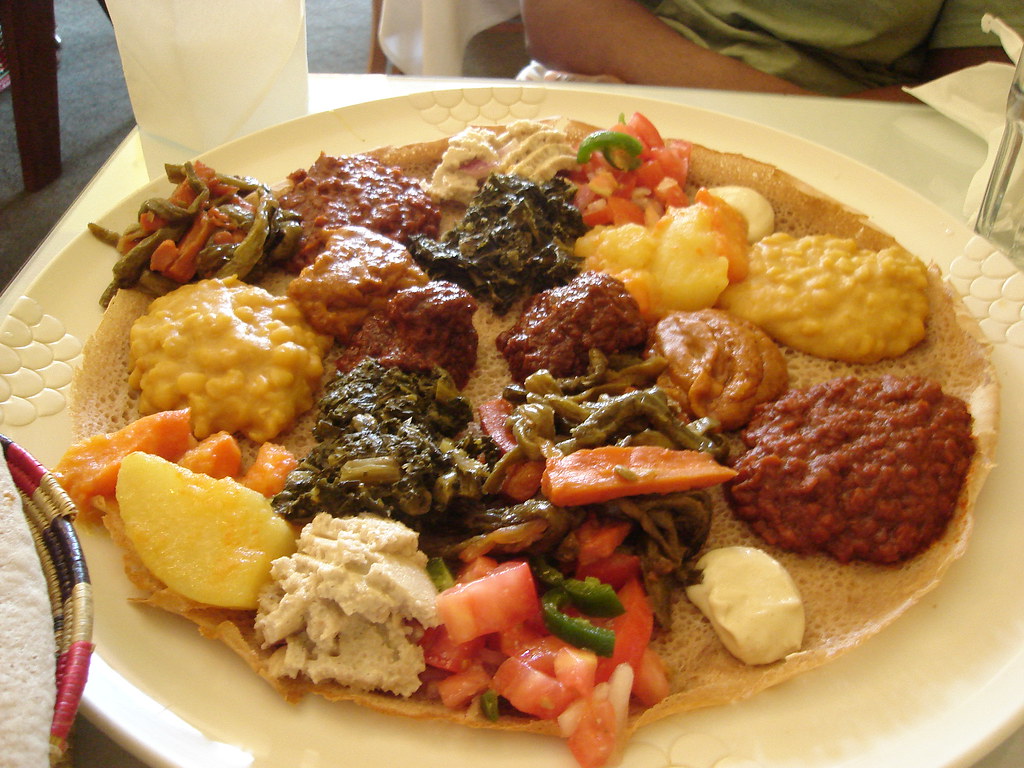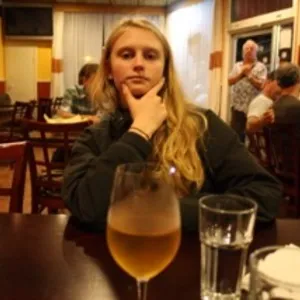No spoons, no forks, no knives. There was not a single utensil on the table. That is how my experience started off when I decided to try a new cuisine. Walia Ethiopian Cuisine, near Santa Clara University, provided reasons to question the way in which people eat in the American culture.

At first, I was a little confused when I sat down at the table and there were only water glasses and napkins next to me. Did the waiter forget to set our table? Was the restaurant in a frantic rush to clean their utensils? Both inquiries—wrong.
The reasoning behind this unpredictable table setting was even better than I expected. I was allowed to eat with my hands, without any judgement or disapproval from anyone around me. Who would have thought that after all of the years of being taught etiquette at the dining table, I would be encouraged to break these rules that had been part of the way I had eaten since I was a young child.
When the platter was served, it came on a shiny dish with colorful meat and vegetable curries circled around the platter into a concise design of appetizing wonder. Never had I seen a presentation of food quite like this one.
Along with this, came a basket of warm injera, which is also known as Ethiopian flat bread. This spongy food acted as my new utensil. I proceeded to rip off pieces of the flat sourdough bread and scoop curry within the crevice I had formed.
Both my friend and I were fighting for the last bites of curry, each with fingers fully immersed in the food. But before the last bit of curry was consumed, I realized that the plate itself was edible. Now I am not talking about the silver platter, but lied on top of it, was a giant injera, acting as the base layer to hold the curry.
This had reached a new level in my eating experiences. I was always sad when the plate became empty and all that was left was a ceramic dish. But now was the chance to eat all of the spongy goodness that had soaked up all the flavors of curry.
Before finishing the last of the injera, I reflected on this experience and realized that the Ethiopian way of eating fosters an environment of openness and enjoyment, rather than one based solely on politeness, which is seen throughout the American culture. This stems from the fact that I was able to touch the food with my hands and taste the food fully, with no interruption of a cold metal object (aka a fork) entering my mouth and interfering with my overall experience.
While being immersed in the Ethiopian culture for a short while, I was able to create my own unique experience while eating because I was sharing the platter with my friend and deciding on what to eat. This contrasted significantly from the American culture where it is normal to order a dish independent from others, where no sharing is involved.
A more communal experience encouraged me to realize that I am eating a shared resource and what I choose to eat affects what others will eat. With this in mind, I not only enjoyed using my hands, but also appreciated having this new awareness of the food. The Walia Ethiopian Cuisine strayed me far from my usual habits of eating into a realm of fulfilling my desire to dig in and get to know the food without anything to stop me.


